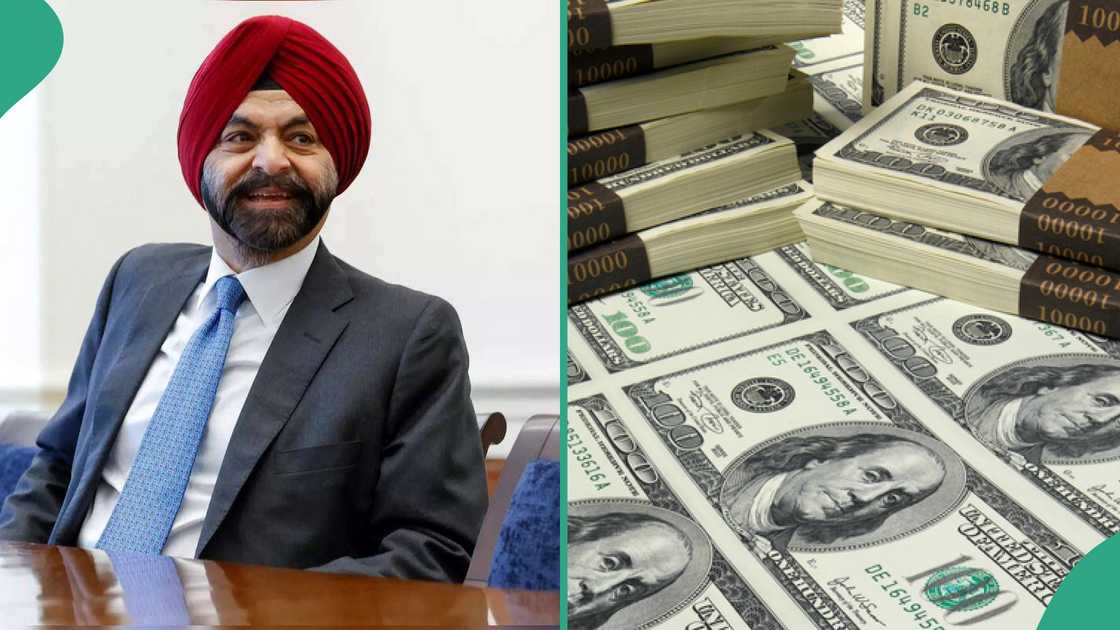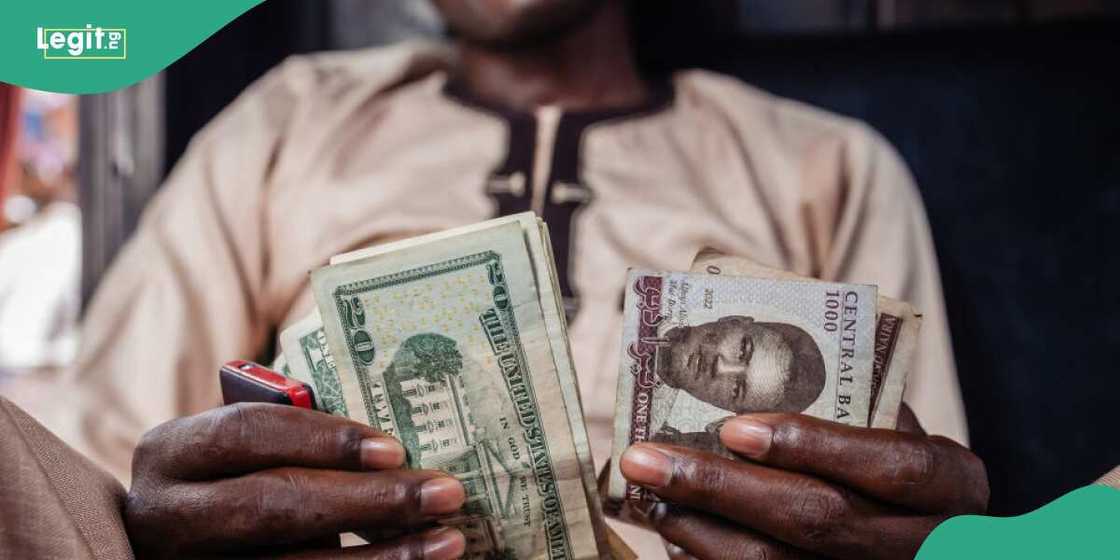In a welcome turn for many Nigerians, the naira has continued to show notable resilience and appreciation against major foreign currencies, with recent figures indicating a stronger currency performance in the face of once-intense demand pressures. This development brings a sense of optimism to businesses, importers, and everyday Nigerians whose purchasing power often hinges on the health of the national currency.
According to the latest data released by the Central Bank of Nigeria (CBN), the naira closed trading on Thursday, October 9, at N1,466.65 to the US dollar in the Nigerian Foreign Exchange Market (NFEM). This figure marks a steady improvement and reinforces the effects of both market forces and recent monetary policies aimed at restoring balance to the FX market.
The rate observed represents a gain of N3.97 or approximately 0.27%, compared to the N1,470.62/$1 exchange rate recorded just a day prior. Such incremental but consistent improvements are seen as encouraging signs by market observers and participants alike.
The positive trajectory extended to other currencies as well. On the same day, the naira gained N14.57 against the British pound, closing at N1,960.62/£1 versus the previous day’s rate of N1,975.19/£1. Against the euro, the currency also appreciated by N9.32, ending at N1,702.19/€1, up from N1,711.51/€1. These movements underscore the naira’s improved stability and competitiveness within the broader international foreign exchange landscape.
For Nigerian consumers leveraging traditional banking channels, local financial institutions mirrored this stability. Data from GTBank revealed that their exchange rate for the US dollar was steady at N1,478/$1 on Thursday—unchanged from the earlier session. Such trends point to broader market confidence and the gradual easing of currency pressures that had, until recently, sparked uncertainty and price volatility.
Naira vs Dollar in Nigeria’s Parallel Market
The naira’s performance in the unofficial or black market—a critical space given Nigeria’s significant informal sector—also warrants attention. Reports from local currency traders indicate that the naira appreciated modestly against the US dollar in Thursday’s trading, with the greenback sold at N1,485/$1, a slight gain from the N1,490 posted during the midweek session.
Several traders in Lagos’ bustling currency exchange hubs acknowledged this improvement as a sign of reduced speculative demand and relative calm in the typically volatile parallel market.
Abdullahii, a licensed Bureau De Change (BDC) operator based in Abuja, commented:
“Yes, we sold the dollar at a lower rate due to reduced demand.”
Here is the Latest Exchange Rate Snapshot

Source: UGC
World Bank Weighs In: Praise and Precautions for Nigeria’s Currency Reforms
On the international stage, Nigeria’s foreign exchange policy reforms have drawn commendation from the World Bank, which recently highlighted the Central Bank of Nigeria’s (CBN) efforts in bringing about greater stability to the country’s FX market. The World Bank noted that these reforms—initiated over the past year—played a pivotal role in limiting currency volatility and boosting investor and business confidence.
However, the World Bank also issued a measured warning, highlighting lingering vulnerabilities. The report pointed out that Nigeria remains susceptible to external economic shocks, largely due to its narrow export portfolio and ongoing dependence on short-term, speculative capital flows. Sustaining long-term stability, the Bank recommends, will require decisive efforts to diversify export earnings and foster sources of steady foreign exchange—namely oil revenues, remittances from the Nigerian diaspora, and, crucially, an expansion of non-oil exports.
A key message from the World Bank involves the need for a more transparent FX policy regime. Financial experts interviewed by NowahalaZone, like Lagos-based economist Dr. Anita Okoro, emphasize the implications: “Market transparency and predictable rules can attract more genuine investment and stabilize currency expectations,” she said.
The full range of these insights is detailed in the World Bank’s October 2025 Nigeria Development Update report titled “From Policy to People: Bringing the Reform Gains Home.” Released on Wednesday, the document invites policymakers to focus on reforms that benefit everyday Nigerians, with the goal of reshaping the country’s economic trajectory for the better.
Nigeria’s External Reserves Reach Record Highs
On the fiscal side, the CBN disclosed a significant increase in Nigeria’s external reserves, which reportedly surged to $41.22 billion—an achievement not seen in over four years. This rise signals a strengthening of the country’s financial buffer, enhancing the central bank’s capability to manage currency interventions and defend the naira against short-term volatility.
According to a recent report, this development is attributed to a blend of improved oil receipts and cautious monetary administration. For many Nigerian families and businesses, a robust external reserve base means greater confidence that foreign transactions, including import payments and tuition remittances, can proceed without undue disruption.
Economic observers suggest that such reserves not only support Nigeria’s international credit standing but also play a critical role in anchoring overall economic stability, especially in times of external stress or oil price fluctuations. “The importance of these reserves cannot be overemphasized—they offer crucial support for exchange rate management and signal strength to investors,” explains Sola Adeyemi, an independent market analyst based in Lagos.
Local Context: What This Means for Nigerians and Africa
For millions of Nigerians, currency fluctuations have direct, daily impacts—from the price at the market stalls to the cost of imported medicine or electronics. The latest improvements in the naira’s exchange rate have provided some relief against runaway inflation, which had previously eroded the spending power of ordinary citizens. Businesses, particularly small and medium-sized enterprises that rely on raw materials from abroad, also welcome the reduced unpredictability.
Neighbouring West African countries, such as Ghana and the francophone bloc, monitor Nigeria’s FX performance closely, given the cross-border trade links and broader effects on regional economic health. Challenges remain, especially as global market shifts, geopolitical tensions, or dips in oil prices can still shake confidence.
Looking Ahead: Challenges, Reforms, and Hope for the Future
While recent progress offers hope, experts caution that the sustainability of a strong naira is far from guaranteed. Continued investment in non-oil sectors, persistent regulatory reforms, and an enabling environment for local value addition will prove crucial if Nigeria is to build a resilient currency and economy for the long run.
Banking sector reforms and improved transparency, as advocated by the World Bank, are steps in the right direction. However, stakeholders also urge for policies aimed at supporting youth entrepreneurship, improving infrastructure, and addressing insecurity—factors that underlie much of the uncertainty that still mars the currency market.
Global analysts, including those at Standard Bank and Ecobank, note that Nigeria, as Africa’s most populous nation and largest economy, has an outsized influence on regional financial stability. The progress made so far, though modest, is a signal that with the right reforms and a collective national effort, robust economic transformation is possible.
What’s your perspective on the recent appreciation of the naira, and what more do you believe needs to be done to ensure sustained economic growth? Drop your comments below and don’t forget to follow us for the latest business and economy updates.










